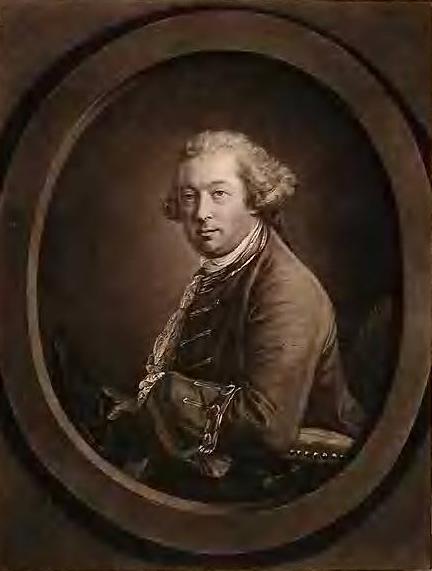- Thomas Pownall
Infobox Governor
name = Thomas Pownall
order =
office = Governor of the Province of Massachusetts Bay
term_start =August 3 ,1757
term_end =June 3 ,1760
lieutenant =
predecessor =Massachusetts Governor's Council
successor = Thomas Hutchinson
birth_date = 1722
birth_place =
death_date =February 25 ,1805
death_place =Bath, Somerset ,England
party =
spouse =
profession =
religion =Thomas Pownall (1722ndash
February 25 ,1805 ), British colonialstatesman and soldier.A son of William and Sarah (Burniston) Pownall, Thomas was educated at Lincoln and at
Trinity College, Cambridge , where he graduated in 1743. He entered the office of the lord's commissioners of trade and plantations, of which his brother John was then secretary; and in 1753 he went to America as private secretary to Sir Danvers Osborne, just appointed governor ofNew York . Osborne committedsuicide soon after reaching New York (October 6 ), but Pownall remained in America, devoting himself to studying the condition of the American colonies.At the
Albany Congress , in 1754, he metBenjamin Franklin , and a life-long friendship between the two resulted. In 1756 he returned to England, and presented to Pitt a plan for a campaign against the French inCanada , to begin with the investment ofQuebec . In 1757 Pitt appointed him governor of Massachusetts, where he arrived in August of that year. In that office he sought to strengthen ties with the General Court and create a broader base for his rule, which concerned the Crown. He also heartily supported Pitt's policy during theSeven Years' War , and in 1758 encouraged the equipment of a force of 7000 men, to be recruited and armed inNew England ; but once the French power in America was broken, Pownall came more directly under the influence of the lords of trade, and his unwillingness to carry out the repressive policies of that body caused his dismissal from Massachusetts and transfer to the governorship ofSouth Carolina in February 1760.This office he held nominally for about a year; but he never went to South Carolina, and in June 1760 he returned to England. In 1762-1763 he was commissary-general of the British troops in
Germany . As member of parliament forTregony in 1768-1774 and forMinehead in 1774-1780, he at first sided with the Whigs in opposing all plans to tax the American colonists, but he supported North's administration after the outbreak of the War of Independence. He died at Bath on the 25th of February 1805. In 1764 he published (at first anonymously) his famous "Administration of the Colonies" (other editions appeared in 1765, 1766, 1768), in which he advocated a union of all British possessions upon the basis of community of commercial interests.For an extended account of Pownall's career and a bibliography of his publications see "Thomas Pownall, M.P., F.R.S." (London, 1908), by Charles AW Pownall, a distant kinsman, who attempts to prove that Pownall was the author behind the scenes of the "Letters" of
Junius and that Francis was his subordinate.References
*1911
External links
* [http://www.mass.gov/statehouse/massgovs/tpownall.htm Official Massachusetts Governor Biography]
*worldcat id|id=lccn-n80-38455
Wikimedia Foundation. 2010.
